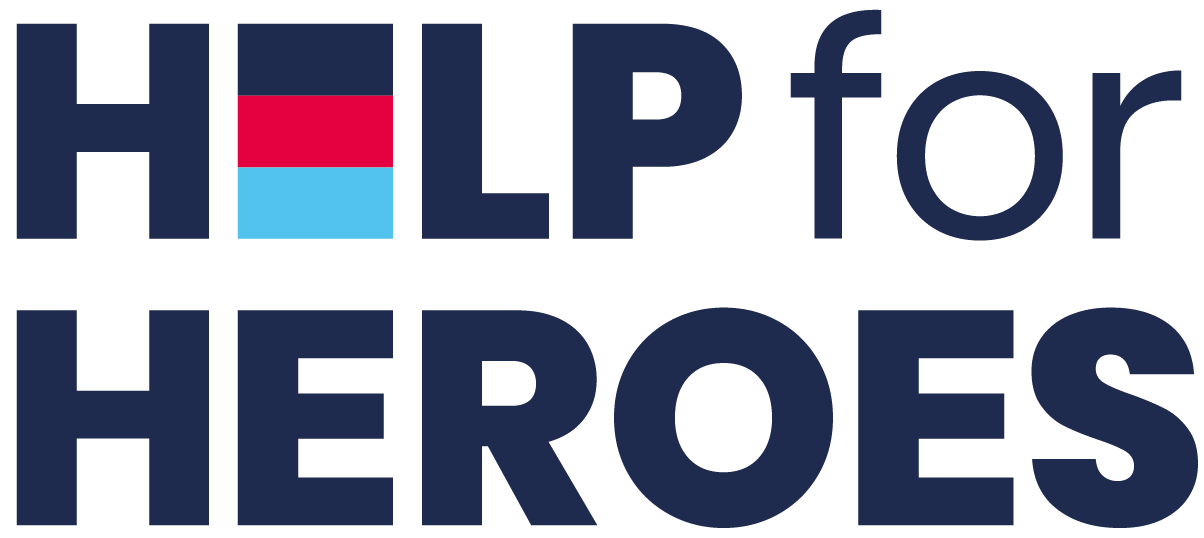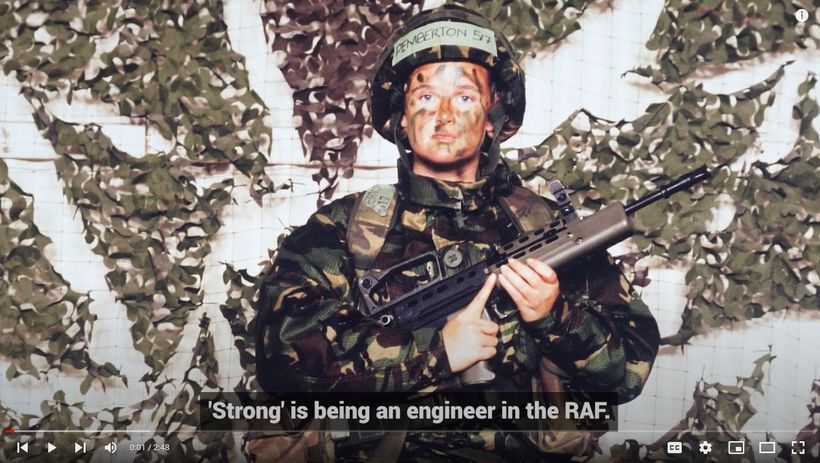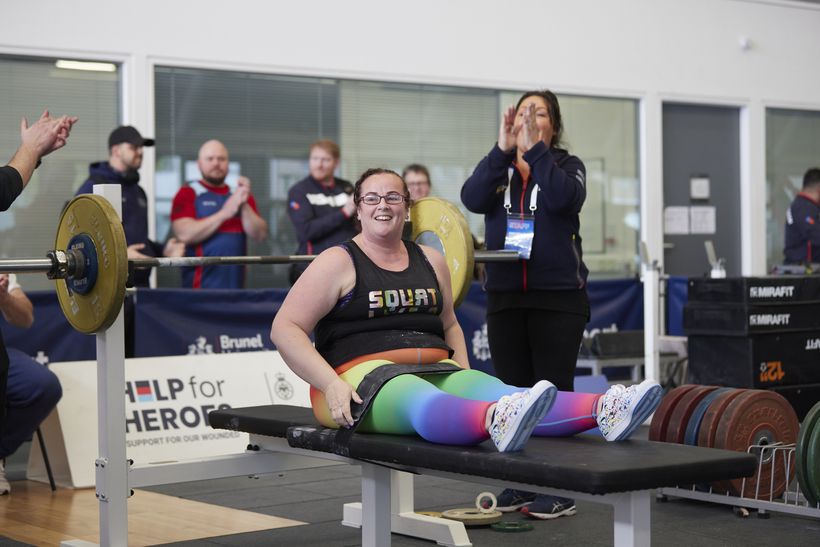Updated on
Clare the winner. Clare the athlete. Clare the competitor. That is how former Senior Aircraftsman Clare, 41, from Poole, wants to be perceived. Not just as a wife, mother, cook, cleaner, or as someone who will be completely blind in five to 10 years’ time.
"Joining the RAF was just something I always wanted to do. We don't really have any military background within our family. I just knew I wanted to work with my hands, fix things. That’s why I wanted to do engineering. That's why I joined the military.
“I was a propulsion technician, working on things like engines, gear boxes and fuel systems. I serviced Chinook helicopters on 7 Squadron at RAF Odiham; it was very deployable, serving all over the country, all over the world.
A promising career cut short
“I first noticed something was wrong with my sight in 2006. I woke up one day unable to see properly out of one eye. My doctor sent me to the hospital, but they said they'd never seen my condition before and it was too far gone to do anything about it.
“The condition I have is called Punctate Inner Choroidopathy (PIC). I develop bleeds in the back of my eye which cause a loss of vision. I have injections to stop the bleed, but every time I have an injection, it creates a new scar that limits my eyesight further. I’ve lost the majority of the vision in my left eye and only have slight peripheral vision remaining.
“I was medically discharged from the RAF in 2008. It was pretty traumatic. You go in front of a Medical Board, and they say, 'Yes, you're no longer fit for service.' You go back to your room, you pack it up, and that’s it. The end of your life in the military.
“In five to ten years I'll be completely blind. When I was diagnosed, I don't suppose it really hit me what was going to happen. The realisation that this was going to be long-term came when the condition developed in my right eye – my good eye.
“When it actually hits home, you think – right, I can go one of two ways. I can get really down, feel really sad, or I can get up, and we can get on with this.
Returning to life as a civilian
“At first, life as a civilian felt a bit like a failure. I hadn't been to war, hadn't served my time. When you join, you arrive to a big fanfare, only to be discharged because of something that happened outside of war or conflict. It was just unfortunate.
“I went on to work as a civilian contractor fixing Gazelle Helicopters, light aircrafts and gliders until 2010 when I had to stop engineering work completely, due to my deteriorating vision. I had to go into an insurance job, which was completely not where I thought I would be. It was an office based job, I had a big monitor to help me see. I lost all purpose, the one thing I thought I was going to do for the rest of my life – engineering, whether it be in the military or not, just disappeared. I don’t think I quite realised how much of my identity I had lost.
"My mental health took a real dive then. I was just Clare, I was just a mum, a wife. I didn't really feel like a person. I was just coasting through life. That’s when a friend stepped in to show me what Help for Heroes is all about.
Finding a new purpose through sport
“A really good friend – also called Clare –said I had to attend a Help for Heroes sports camp with her in Bath. She refused to take no for an answer, telling me it was ‘absolutely amazing’, offering tasters of everything – swimming, cycling, athletics, archery, power lifting, rowing.
“She’d competed in the Invictus Games in Toronto and came back a different person. She was glowing. Walking taller. That was what it did for her, and when she saw me floundering, she wanted to give me a little bit of a push.
“I almost got out of the car halfway to Bath. But when I was there, I was Clare again. I was a real person, and I got to experience what I was missing from my life and the penny just dropped that I can live my life again through sport, with the help of Help for Heroes. That's what started me off. Going on the Invictus journey, getting to wear the tracksuit, the colours and the flag. I got to represent Team GB in the Hague amongst all of the other countries.
"Finally competing was a huge mix of emotions for me. It was a long time coming due to postponements so the initial feeling was relief I suppose. Relief we'd made it as a team. The excitement was overwhelming too. I think I was so much more excited than nervous too. I wanted to fully embrace and make full use of my time there. I loved soaking up the atmosphere. I loved meeting new people and hearing their stories and mostly I loved seeing how myself and my team mates had grown and achieved so very much.
"I was so lucky to have not only my Invictus family around me but also my husband and children there too. To share that with them was just unbelievable. The look of pride on their faces gave me an extra push. The children made personalised banners and loved telling everyone how proud they were of mummy.
“Invictus was just the start of my journey. It gave me the belief that I can do these things again. I'm not just a blind person. I'm not just a person that has a disability. The games had a massive impact on my life. I've got my identity back!"
Help is always there
“I'd always heard of Help for Heroes but I felt a little bit like I wasn’t disabled enough, not injured enough, and because I was not injured in conflict or anything like that, I didn't think I should speak to them. I had imposter syndrome. But when I got in touch, they said: 'you're exactly the type of person who should be talking to us, and these are the things that we can do to help,' – not just me, but my family as well.
I recently accessed the Hidden Wounds service for Mental Health support; I didn’t realise I needed it until I spoke to them; the online and self-help guides are amazing.
I do feel like veterans are neglected by the State. You’ve served your time, you’ve given the best part of your life and you come out and you need some help, some guidance, an extra set of arms around you and that’s where the charity can really make a difference.
To have the support and knowing that they're always going to be there is invaluable – even really simple things, like knowing I can pick up the phone and say, 'actually today's a really hard day' and having someone there that I can chat to. As my condition progresses, and my vision gets worse I'm likely to need more of their support..”
Sign up to our monthly newsletter to find out how you can #GiveStrength to veterans like Clare.



